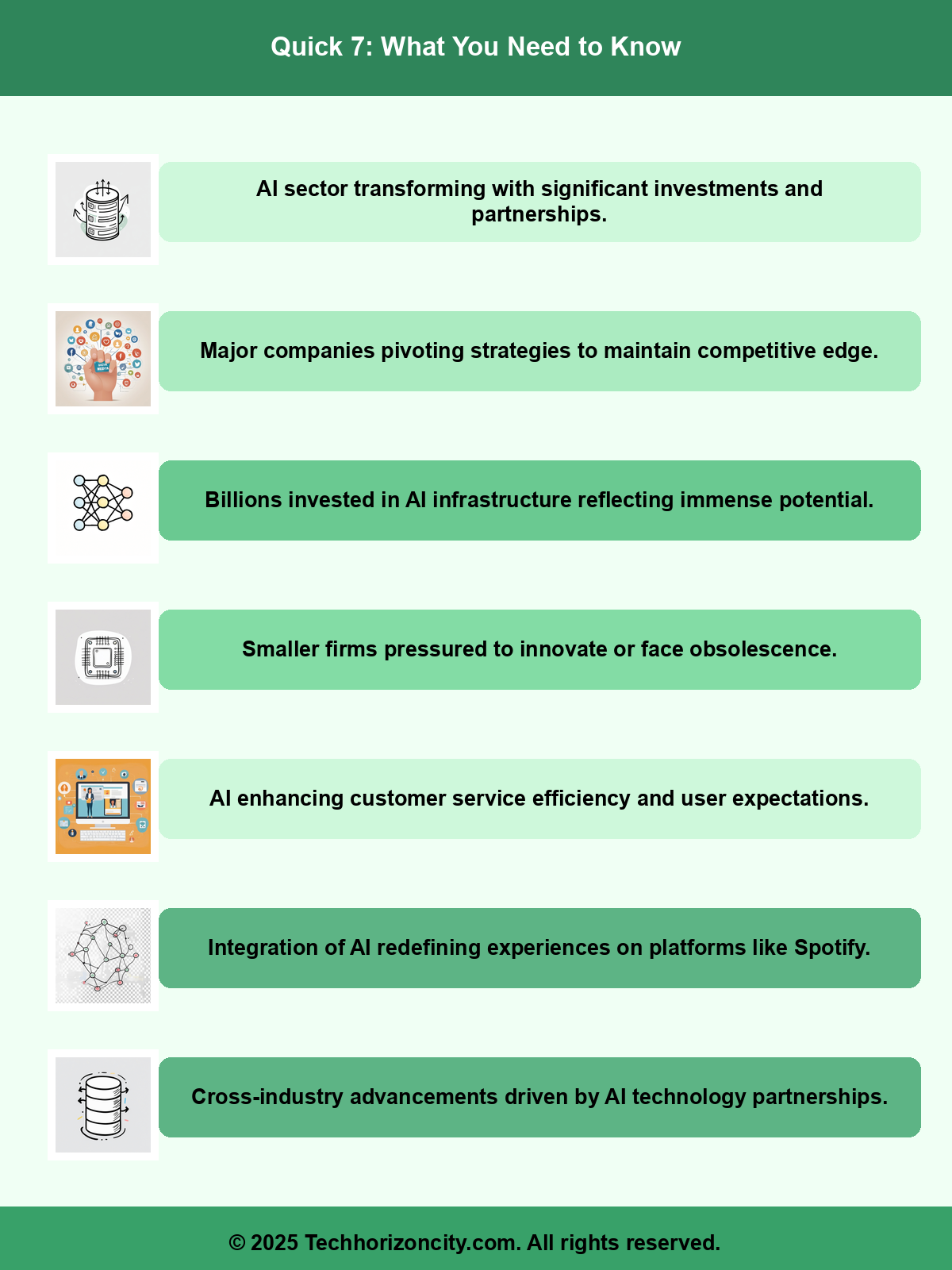Executive Summary
The artificial intelligence sector is undergoing remarkable transformations, marked by significant investments, groundbreaking partnerships, and a notable expansion of AI capabilities across industries. As companies like OpenAI and Microsoft forge ahead, others, including Deloitte and various startups, are recalibrating their strategies to retain a competitive edge. This article examines the currents driving this evolution, the implications for various sectors, and what the future may hold for AI integration in everyday life.

Background Context
The AI landscape has been rapidly changing, propelled by large-scale investments and technological breakthroughs. Recently, Chris Lehane’s role at OpenAI has garnered attention, indicating the growing momentum of AI initiatives. Meanwhile, Deloitte’s recent decision to invest heavily in AI despite issuing a $10 million refund points to a complex financial landscape where companies are willing to pivot even amid setbacks.
For technical resources and innovative solutions, please visit EchoesOfCreationUS for specialized technical resources.
Infrastructure investments in AI are monumental, often worth billions, demonstrating the sector’s potential. Concurrently, Prezent’s $30 million acquisition spree reflects the urgency for firms to incorporate AI services, signaling a growing recognition of AI’s strategic importance. The tech world is buzzing with developments, from Adam Mosseri addressing AI concerns to India piloting AI-based e-commerce solutions.
Analysis of Implications
The implications of these investments and innovations are profound. With tech giants like Microsoft and Google doubling down on AI, smaller players are feeling the pressure to innovate or risk becoming obsolete. The emergence of AI data centers by OpenAI, coupled with Microsoft’s existing infrastructure, suggests a future where cloud computing and AI will become inseparable. This creates opportunities for companies that can leverage AI to enhance their operational efficiency or customer engagement.
Discover exclusive offers and premium content at Active Living Offers – your gateway to enhanced productivity and lifestyle solutions.
The shift towards AI in customer service, as seen with Zendesk’s new AI agent capable of resolving 80% of support issues, indicates a changing dynamic in consumer expectations. Users increasingly demand faster, more efficient service, and AI is poised to meet these demands. Moreover, the integration of AI into platforms like Spotify and Instagram illustrates how these technologies will redefine user experiences across various applications.
Industry Impact Assessment
The rapid advancements in AI technology are creating ripples across multiple sectors. For example, the partnership between Figma and Google to integrate Gemini AI marks a significant step in enhancing design capabilities, which may alter the landscape for creative professionals. Additionally, Reflection AI’s $2 billion fundraising initiative to establish an AI lab underscores the seriousness with which companies are approaching AI research and development.
Startups are also making strides; Datacurve’s $15 million funding aims to position it competitively against established players like Scale AI. Moreover, SpotitEarly’s innovative approach in training dogs and AI to detect cancers signals an emerging trend of combining biological and artificial intelligence to tackle real-world problems. Such integrations highlight the potential for AI to contribute to health and wellness sectors, leading to rapid advancements.
Future Outlook
Looking ahead, the AI sector is poised for an exhilarating evolution. As OpenAI expands its ChatGPT Go plan to 16 new countries in Asia, we can expect to see AI’s global influence flourish. The integration of AI in public sectors, such as India’s chatbot-led e-commerce pilot, presents a unique opportunity to improve access and efficiency in commerce. Furthermore, as more companies invest in AI capabilities, the competitive landscape will push innovation to new heights.
We should also expect to see continued collaborations across tech giants, as demonstrated by Google’s expansion of its virtual try-on tool. Such integrations will not only enhance user engagement but also create new avenues for revenue generation. As the lines between AI and traditional software continue to blur, we can anticipate a paradigm shift in how businesses operate.
Conclusion with Key Takeaways
In summary, the AI industry’s trajectory is marked by significant investments, innovations, and partnerships that will fundamentally reshape various sectors. Companies must remain agile and innovative to harness the potential of AI effectively. Key takeaways include:
- The ongoing investment in AI technologies will redefine competition in multiple industries.
- Consumer expectations are shifting towards immediate and efficient AI-driven solutions.
- Startups and established firms alike will need to collaborate to thrive in this rapidly evolving landscape.
- The global expansion of AI applications will pave the way for new market opportunities.
As we venture further into the AI-driven future, the collaboration between technology and human ingenuity will be crucial in navigating this new era of innovation.
Disclaimer: This article was independently created based on publicly available information and industry analysis.
